A good friend of mine is always annoyed by this category; aren’t the best movies like the most tantalizing lovers, alluring but playing hard-to-get? The title may not suit my needs for what I try to do here, because these movies gave me a taste of fascination, and then quickly smothered it up with disappointment.
Fay Grim (Hal Hartley)
As a huge lover of Henry Fool, I awaited Hal Hartley’s delicious followup with bated breath. Cast off is the absurdist humor based on portentous silence and still, grand camera work. In their places, we have a bizarre espionage plot and Third Man-style tilted angles (not to mention the shift to digital video). Henry even serves as a Harry Lime-like figure, discussed but never seen until the climax, engaging in shady business with shady people but always standing aloof from them. But for all of Hartley’s efforts to turn the nature of art into yet another bizarre cavalcade of meaninglessness, the movie collapses under its own wackiness, not achieving the balance of emotion and provocation that its predecessor mastered.
Grindhouse (Robert Rodriguez & Quentin Tarantino)
A strange project, this one. As fanboy homage, it is a delight, Rodriguez’s Planet Terror in particular. The bioterror subtext may hint at some broader political significance, but the movie really is just campy trash, which is how we should enjoy it. The trailers–by Rodriguez, Rob Zombie, Eli Roth, and Edgar Wright–are the highlights, as they delight in parodying and celebrating 70's grindhouse culture. Tarantino’s Death Proof is certainly the most accomplished of all the pieces, and it leaves you with more to chew on, although not all of it is good. The dialogue is his strongest since Jackie Brown, and his exploration of femininity is his strongest since then. But the mixed emotions of the climactic act of vengeance, in which Rosario Dawson and Zoe Bell gleefully take down Kurt Russell's deranged stuntman, left me feeling strangely uncomfortable.
I am Legend (Francis Lawrence)
If we want to talk about narrative bifurcation, Apichatpong Weerasethakul has got nothing on this schizoid Hollywood horror film. Its first half is a masterful evocation of last-man-on-Earth subjectivity, highly concentrated in its quotidian pace and narrative ellipses. But as the second hour comes around, one suspension of disbelief too many causes the damn thing to collapse in on itself, resulting in a false Christian happy ending that undercuts all that came before it.
In the Valley of Elah (Paul Haggis)
I was pretty shocked when I found myself liking something that Paul Haggis had created. But here was Haggis restrained, concentrated, and subtextual. Tommy Lee Jones’s performance is one of great precision, depicting a racist patriot who needs to find out why his soldier son was murdered. To watch the narrative unfold in its various dimensions is a marvel, and Hank Deerfield’s transformation is poignant and authentic. What destroys the entire film is a cheap, overwrought, purely Haggisian piece of symbolism in the last two minutes that makes Hank just another member of Crash’s panoply of stereotypes.
Juno (Jason Reitman/Diablo Cody)
I had very strong emotional reactions to Juno. It is the fantasy life I had always wanted for myself as a teenager: the quick wit, the warm and understanding parents, the rebellious sense of the absurd. But a fantasy it is: to my knowledge, no characters like these exist in real life, anywhere, in any form. Sure it is only a movie, but as a movie trying to position itself as an honest teen comedy, it mostly felt like a pack of lies. A lot of great one-liners and solid performances by Ellen Page, Michael Cera, J.K. Simmons, Allison Janney, Jason Bateman and Jennifer Garner notwithstanding, Juno–and Juno MacGuff herself, for that matter–tries too hard to stake a claim for its individuality. Of course, all of this could be invalidated due to the very subjective and personal reading I had: by the end, it was hard to think of Juno as only a movie, but rather a damning cultural artifact and a mournful autobiographical elegy.
Knocked Up (Judd Apatow)
Another unexpected pregnancy comedy that left me with a weird taste in my mouth, Judd Apatow doesn’t trust himself to go all the way with his examination of how men and women interact. Apatow is a master of writing and directing comedy; he doesn’t crudely juxtapose sweet sentimentality with scatology like the Farrelly Brothers; he instead seemlessly integrates them. He deftly handles actors who have great timing, and possesses an instinctive sense of when to hold back. Apatow also creates one of the most moving scenes from a marriage when Ben (Seth Rogen) confronts Pete (Paul Rudd) for being a "shitty husband," and thus ruining Ben’s relationship with his pregnant girlfriend, Allison (Katharine Heigl). Ben storms off, and Pete just stands there, on the verge of breaking down. But then, he puts on his best Dad face, and brings out the birthday cake to his daughter’s party. This moment is merely the exception to the rule, however; Apatow presents one difficult-to-swallow premise after another, and pities his women while empathizing with his men. There is a great sense of foreboding as Ben and Allison ride off into the sunset, but Apatow doesn’t seal the deal with this ironic conclusion, leaving us thinking that Apatow truly believes he has given us a happy ending.
Margot at the Wedding (Noah Baumbach)
A recent holiday gathering provided me a fresh opportunity to reconsider Noah Baumbach’s scabrous portrait of family. And I suppose that Margot’s true failing is over-exaggerating the evil that people do to the ones they love. Certainly real-life analogues of Margot (Nicole Kidman), Pauline (Jennifer Jason Leigh), Claude (Zane Pais), Malcolm (Jack Black) and Jim (John Turturro) say nasty things and then begin laughing five minutes later, but has there been any woman more icily vicious as Kidman’s Margot, or a son so forgiving as Pais’s Claude? And rather than feeling hopeful at the conclusion, I felt like the cycle of abuse was going to begin afresh for Claude. Such a strange movie.
Southland Tales (Richard Kelly)
Its supporters declare Richard Kelly’s white whale to be the future of cinema, a deliberately chaotic mess of mixed-media decay, of extrafilmic allusions, of 21st Century American cultural madness, of the apocalypse itself. Its detractors think it is the worst movie in many years, a chaotic mess of half-baked symbols and metaphors, a facile, childish, self-indulgent political allegory that makes some want to turn Republican. But like so many films of its kind–Heaven’s Gate, One from the Heart, and Showgirls, just to name a few–the truth is a bit more complex. Don’t get me wrong: as a whole, Southland Tales is a bad movie. It is narratively choppy, poorly acted, far too heavily reliant on expository dialogue (along with Justin Timberlake’s voiceover), sloppy with its use of music, and is genuinely, ideologically confused. Kelly definitely has a lot to say, but has no concrete idea about how to say it. Yet, when the film stops trying to explain its madness and just succumbs to it, it is fascinating to watch. Timberlake’s Pilot Abilene is easily the most interesting character, and one wishes he were more prominently featured. Perhaps Kelly’s original cut was a more grounded film (20 minutes were cut and Timberlake’s voiceover was re-written and recorded), but it is hard to imagine anything saving this movie from itself.
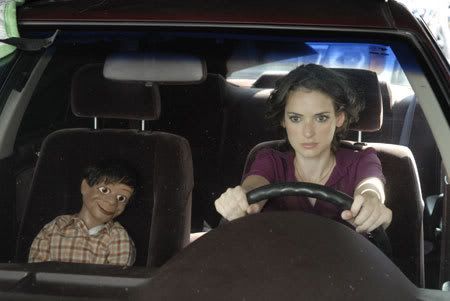
The Ten (David Wain/Ken Marino)
I never thought I would say this, but it is true: Paul Rudd is one of the least funny things about The Ten. Attempting a radically absurdist deconstruction of contemporary bourgeois behavior via the ten commandments–a methodology similarly executed in his masterwork of comedic genius, Wet Hot American Summer–David Wain only comes up smelling like roses about half the time, and that includes the rose that grows out of rhino shit. Rudd is supposed to be the thread which ties it all together (the commandment "thou shalt not commit adultery" is his alone), but he is too conventional, not going for the jugular, as in his best work. Highlights include Liev Schreiber and Joe Lo Truglio as covetous neighbors, Ken Marino and Rob Corddry as amorous prison mates–which is a vehicle for the single funniest moment in the film: Michael Ian Black as a sassily kinky, Shakespeare-reciting prison guard–and A.D. Miles & Bobby Cannavale as men who like to hang out naked while their wives are at church. The more limp elements include Rudd, Adam Brody as a parachute accident cum celebrity, and Gretchen Mol as a librarian who experiences sexual awakening with Jesus in Mexico. Whereas Wet Hot made over-the-top seem effortless, The Ten often feels just over-the-top.
For other provocative yet frustrating movies in 2007, see my post on Beowulf, along with shorter posts on Black Book and Offside (found under "SC Movie Journal).
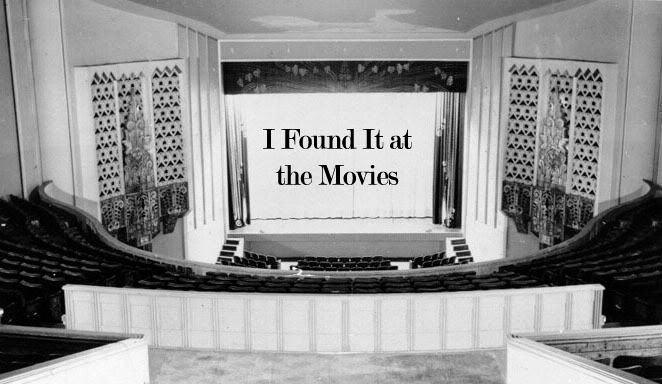

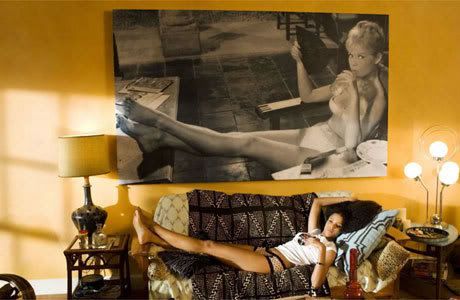
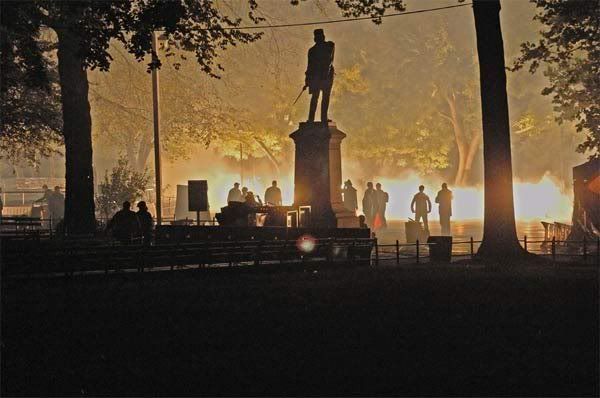
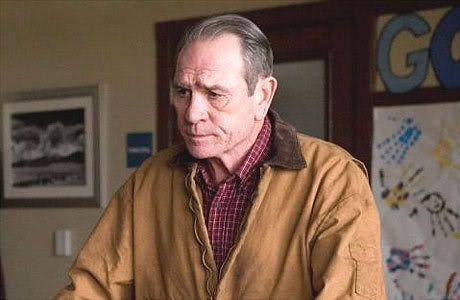
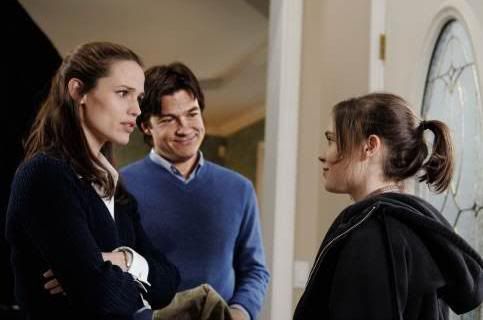
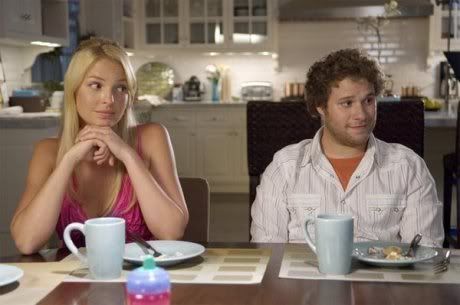
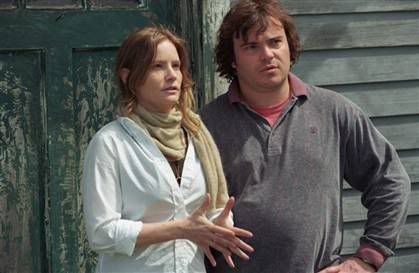
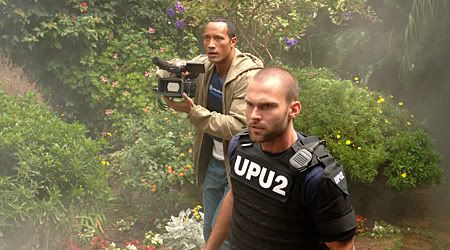
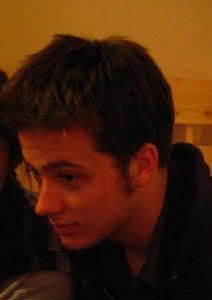
1 comment:
I agreed with almost all the list, excepr for Juno, when I saw this movie I thought that I was wasting my time, when the movie end, well I change my mind.
Post a Comment